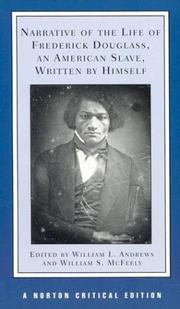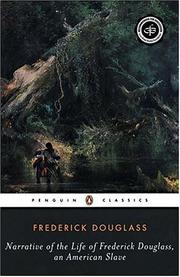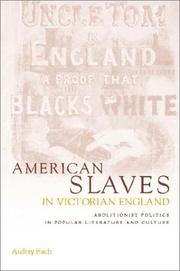| Listing 1 - 10 of 13 | << page >> |
Sort by
|
Book
ISBN: 0815653697 9780815653691 0815634463 9780815634461 9780815634461 9780815610687 0815610688 Year: 2016 Publisher: Syracuse
Abstract | Keywords | Export | Availability | Bookmark
 Loading...
Loading...Choose an application
- Reference Manager
- EndNote
- RefWorks (Direct export to RefWorks)
Underground railroad. --- Antislavery movements --- Fugitive slaves --- African American abolitionists --- Abolitionists, African American --- Afro-American abolitionists --- Abolitionists --- Underground Railroad --- Loguen, Jermain Wesley. --- Loguen, J. W.
Book
ISBN: 153614617X 9781536146172 9781536146165 1536146161 Year: 2018 Publisher: New York
Abstract | Keywords | Export | Availability | Bookmark
 Loading...
Loading...Choose an application
- Reference Manager
- EndNote
- RefWorks (Direct export to RefWorks)
Book
ISBN: 1108809499 1108767052 1108487513 1108805132 1108720412 9781108809498 Year: 2020 Publisher: Cambridge : Cambridge University Press,
Abstract | Keywords | Export | Availability | Bookmark
 Loading...
Loading...Choose an application
- Reference Manager
- EndNote
- RefWorks (Direct export to RefWorks)
During the nineteenth century and especially after the Civil War, scores of black abolitionists like Frederick Douglass, Moses Roper and Ellen Craft travelled to England, Ireland, Scotland, and parts of rural Wales to educate the public on slavery. By sharing their oratorical, visual, and literary testimony to transatlantic audiences, African American activists galvanised the antislavery movement, which had severe consequences for former slaveholders, pro-slavery defenders, white racists, and ignorant publics. Their journeys highlighted not only their death-defying escapes from bondage but also their desire to speak out against slavery and white supremacy on foreign soil. Hannah-Rose Murray explores the radical transatlantic journeys formerly enslaved individuals made to the British Isles, and what light they shed on our understanding of the abolitionist movement. She uncovers the reasons why activists visited certain locations, how they adapted to the local political and social climate, and what impact their activism had on British society.
Antislavery movements --- African American abolitionists --- Abolitionism --- Anti-slavery movements --- Slavery --- Human rights movements --- Abolitionists, African American --- Afro-American abolitionists --- Abolitionists --- History

ISBN: 0393969665 Year: 1997 Publisher: New York (N.Y.): Norton
Abstract | Keywords | Export | Availability | Bookmark
 Loading...
Loading...Choose an application
- Reference Manager
- EndNote
- RefWorks (Direct export to RefWorks)
Abolitionists --- -African American abolitionists --- #KVHA:American Studies --- Abolitionists, African American --- Afro-American abolitionists --- Social reformers --- Douglass, Frederick --- African American abolitionists --- Douglass, Frederick, --- Bailey, Frederick Augustus Washington, --- Bailey, Freddie, --- Bailey, Fred, --- Baly, Frederick Augustus Washington,
Book
ISBN: 0807895792 9780807895795 9781469604213 1469604213 0807833266 9780807833261 9780807833261 9780807872642 0807872644 Year: 2010 Publisher: Chapel Hill
Abstract | Keywords | Export | Availability | Bookmark
 Loading...
Loading...Choose an application
- Reference Manager
- EndNote
- RefWorks (Direct export to RefWorks)
David Ruggles (1810-1849) was one of the most heroic--and has been one of the most often overlooked--figures of the early abolitionist movement in America. Graham Russell Gao Hodges provides the first biography of this African American activist, writer, publisher, and hydrotherapist who secured liberty for more than six hundred former bond people, the most famous of whom was Frederick Douglass. A forceful, courageous voice for black freedom, Ruggles mentored Douglass, Sojourner Truth, and William Cooper Nell in the skills of antislavery activism. As a founder of the New York Committee of Vigil
Abolitionists --- African American abolitionists --- Underground Railroad --- Antislavery movements --- Abolitionism --- Anti-slavery movements --- Slavery --- Human rights movements --- Fugitive slaves --- Abolitionists, African American --- Afro-American abolitionists --- Social reformers --- History. --- Ruggles, David,
Book
ISBN: 1613764812 9781613764817 9781625342461 9781625342454 1625342454 1625342462 Year: 2016 Publisher: Amherst University of Massachusetts Press
Abstract | Keywords | Export | Availability | Bookmark
 Loading...
Loading...Choose an application
- Reference Manager
- EndNote
- RefWorks (Direct export to RefWorks)
African American intellectuals --- African Americans --- African American abolitionists --- African American women abolitionists --- Afro-American women abolitionists --- Women abolitionists, African American --- Women abolitionists --- Intellectual life --- Remond, Sarah Parker, --- Travel --- American Anti-Slavery Society --- Amerikanischen Gegensclaverey-Gesellschaft --- AASS (American Anti-Slavery Society)

ISBN: 014039012X Year: 1982 Publisher: Harmondsworth Penguin books
Abstract | Keywords | Export | Availability | Bookmark
 Loading...
Loading...Choose an application
- Reference Manager
- EndNote
- RefWorks (Direct export to RefWorks)
Abolitionists --- African American abolitionists --- Abolitionnistes --- Abolitionnistes noirs américains --- Douglass, Frederick, --- -African American abolitionists --- Abolitionists, African American --- Afro-American abolitionists --- Douglass, Frederick --- Abolitionnistes noirs américains --- Bailey, Frederick Augustus Washington, --- Bailey, Freddie, --- Bailey, Fred, --- Baly, Frederick Augustus Washington, --- Biography. --- Biographie --- DOUGLASS (FREDERICK), 1817?-1895 --- AUTOBIOGRAPHIE

ISBN: 0807864374 0807816256 9780807864371 9798890866462 1469624389 Year: 1985 Publisher: Chapel Hill University of North Carolina Press
Abstract | Keywords | Export | Availability | Bookmark
 Loading...
Loading...Choose an application
- Reference Manager
- EndNote
- RefWorks (Direct export to RefWorks)
Antislavery movements --- African American abolitionists --- Abolitionists --- African Americans --- Regions & Countries - Americas --- History & Archaeology --- United States - General --- History --- Afro-Americans --- Black Americans --- Colored people (United States) --- Negroes --- Abolitionists, African American --- Afro-American abolitionists --- Abolitionism --- Anti-slavery movements --- Slavery --- Africans --- Ethnology --- Blacks --- Social reformers --- Human rights movements --- Black people
Book
ISBN: 9780300182088 0300182082 9780300181371 030018137X Year: 2016 Publisher: New Haven London
Abstract | Keywords | Export | Availability | Bookmark
 Loading...
Loading...Choose an application
- Reference Manager
- EndNote
- RefWorks (Direct export to RefWorks)
A groundbreaking history of abolition that recovers the largely forgotten role of African Americans in the long march toward emancipation from the American Revolution through the Civil War Received historical wisdom casts abolitionists as bourgeois, mostly white reformers burdened by racial paternalism and economic conservatism. Manisha Sinha overturns this image, broadening her scope beyond the antebellum period usually associated with abolitionism and recasting it as a radical social movement in which men and women, black and white, free and enslaved found common ground in causes ranging from feminism and utopian socialism to anti-imperialism and efforts to defend the rights of labor. Drawing on extensive archival research, including newly discovered letters and pamphlets, Sinha documents the influence of the Haitian Revolution and the centrality of slave resistance in shaping the ideology and tactics of abolition. This book is a comprehensive new history of the abolition movement in a transnational context. It illustrates how the abolitionist vision ultimately linked the slave's cause to the struggle to redefine American democracy and human rights across the globe.
Slavery --- Antislavery movements --- African American abolitionists --- Abolitionists, African American --- Afro-American abolitionists --- Abolitionists --- Abolitionism --- Anti-slavery movements --- Human rights movements --- History. --- Abolition of slavery --- Antislavery --- Enslavement --- Mui tsai --- Ownership of slaves --- Servitude --- Slave keeping --- Slave system --- Slaveholding --- Thralldom --- Crimes against humanity --- Serfdom --- Slaveholders --- Slaves --- Social reformers --- Political aspects --- Enslaved persons

ISBN: 0511553838 0521660262 0521121655 Year: 2000 Publisher: Cambridge : Cambridge University Press,
Abstract | Keywords | Export | Availability | Bookmark
 Loading...
Loading...Choose an application
- Reference Manager
- EndNote
- RefWorks (Direct export to RefWorks)
Audrey Fisch's study, first published in 2000, examines the circulation within England of the people and ideas of the black Abolitionist campaign. During the 1850s, African-Americans and others active in the campaign to abolish slavery, journeyed to England to present the slave experience and rouse opposition to American slavery. By focusing on Harriet Beecher Stowe's Uncle Tom's Cabin, an anonymous sequel to that novel, Uncle Tom in England, and John Brown's Slave Life in Georgia, and the lecture tours of free blacks and ex-slaves, Fisch follows the discourse of American abolitionism as it moved across the Atlantic and was reshaped by domestic Victorian debates about popular culture and taste, the worker versus the slave, popular education, and working class self-improvement. Despite its popular appeal, she claims, the African-American abolitionist campaign actually re-energised English nationalism. This book will be of interest to students of African-American literature, and nineteenth-century American and English literature.
Antislavery movements --- African American abolitionists --- National characteristics, English --- American literature --- Americans --- Slavery in literature. --- Slavery and slaves in literature --- Slaves in literature --- English literature --- Agrarians (Group of writers) --- English national characteristics --- Abolitionists, African American --- Afro-American abolitionists --- Abolitionists --- Abolitionism --- Anti-slavery movements --- Slavery --- Human rights movements --- History --- Appreciation --- Great Britain --- United States --- Civilization --- American influences. --- Arts and Humanities --- Literature --- Enslaved persons in literature
| Listing 1 - 10 of 13 | << page >> |
Sort by
|

 Search
Search Feedback
Feedback About UniCat
About UniCat  Help
Help News
News